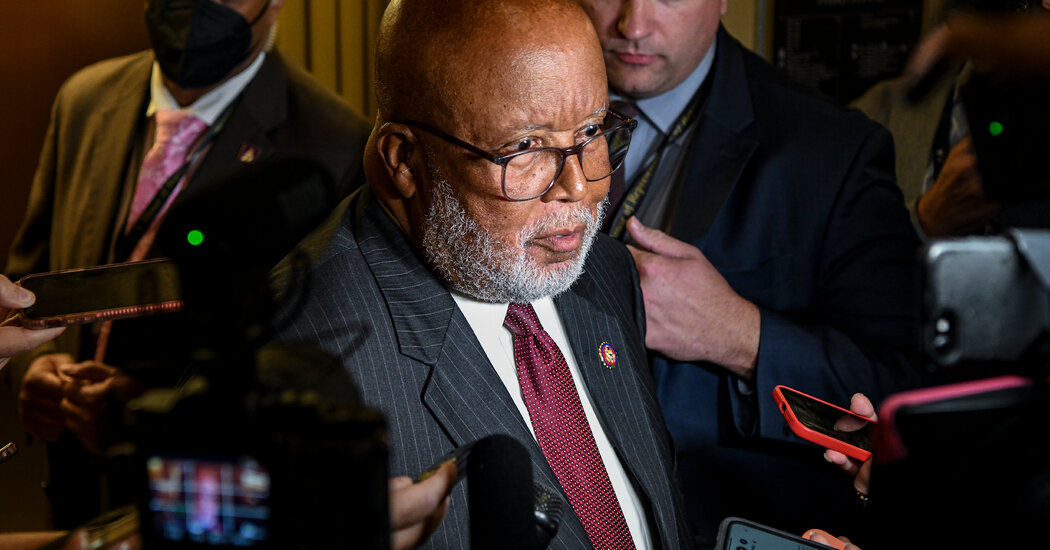
WASHINGTON — Text messages sent and received by Secret Service agents around the time of the Jan. 6 attack on the Capitol last year have been erased, an inspector general said on Thursday, prompting concern from the House committee investigating the assault.
In a letter obtained by The New York Times, the inspector general for the Department of Homeland Security, the parent agency of the Secret Service, reported that many of the agents’ texts were erased as part of a device replacement program even after the inspector general had requested them as part of his inquiry into the events of Jan. 6.
The letter was reported earlier by The Intercept.
Representative Bennie Thompson, Democrat of Mississippi and the chairman of both the Jan. 6 committee and the House Homeland Security Committee, said he received a letter on Thursday from the inspector general informing him of the erased text messages.
“It’s concerning,” Mr. Thompson said in an interview. “It’s important for us to get as much information about how this discrepancy occurred.”
In a statement, the Secret Service disputed parts of the inspector general’s findings, saying that it “lost” data on “some phones” as part of a preplanned three-month “system migration” in January 2021, but maintaining that no texts pertinent to the inquiry “had been lost in the migration.”
Key Revelations From the Jan. 6 Hearings
The agency said that the project was underway before it received notice from the inspector general to preserve its data, and that it did not “maliciously” delete text messages.
The news comes as the Jan. 6 committee is investigating an incident involving former President Donald J. Trump and the Secret Service that occurred in his armored Suburban S.U.V. soon after his speech on the Ellipse ended on Jan. 6.
Cassidy Hutchinson, a former White House aide, testified before the panel that a top White House official told her Mr. Trump had become enraged when his security detail refused to take him to the Capitol.
Ms. Hutchinson said she had been told by Anthony M. Ornato, a deputy White House chief of staff, that Mr. Trump tried to grab the wheel of his vehicle when he was told he could not go to the Capitol to join his supporters, some of whom he had been told were armed. Ms. Hutchinson also said Mr. Ornato told her the president “lunged” at his lead Secret Service agent, Robert Engel.
Secret Service officials, speaking on the condition of anonymity, disputed some details in her account. But the officials did say Mr. Engel, Mr. Ornato and the driver of the Suburban were prepared to testify again before the committee and confirm another element of Ms. Hutchinson’s testimony: that Mr. Trump demanded his agents take him to the Capitol, even after they emphasized that it was too dangerous for him to go.
Both Mr. Engel and Mr. Ornato had already spoken to the committee’s investigators before Ms. Hutchinson’s testimony. Mr. Thompson said on Thursday that neither man had yet come in for another interview, but he said the panel was in discussions with them.
The committee also interviewed an officer with Washington’s Metropolitan Police Department who was part of the presidential motorcade that day and told the panel that Mr. Trump’s departure from the Ellipse was delayed because of his anger over not being allowed to go to the Capitol, according to two people familiar with the officer’s testimony.
The officer was not in the S.U.V. with Mr. Trump, but heard communications concerning the altercation and corroborated that the incident occurred, the people said. The officer’s testimony was reported earlier by CNN.
The disclosure about the Secret Service text messages came from Joseph V. Cuffari, the Homeland Security Department’s inspector general. He wrote to the House and Senate committees with jurisdiction over the department on Wednesday, saying that many Secret Service text messages from Jan. 5 and Jan. 6, 2021, “were erased as part of a device replacement program.”
Mr. Cuffari wrote that the texts were erased after the inspector general’s office started an investigation into Jan. 6 and requested electronic communications from the agency. He also reported that Secret Service personnel were declining to provide records to his office without first having department lawyers review them, a process that he said was causing “weekslong delays” and “confusion.”




